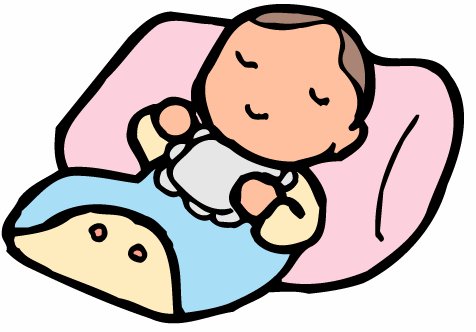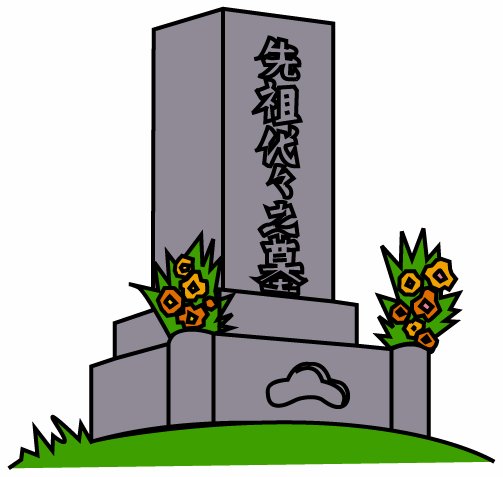
|
|
Birth, Marriage &
Death
|
BIRTH

Japans birth rate is on a downward spiral, with fewer
couples wanting to have children. It is becoming a rare site to see a family
with three or more children. Raising a child is prohibitively expensive,
especially when you consider the high costs of educating a child in Japan.
Traditionally wives go back to their hometowns to have their babies. The wife's
mother will usually help and support her daughter during the birth and help care
for her daughter and the new baby afterwards, the daughter can also, learn how
to care for the baby from her. she will often stay at her parents house for a
few months, often far away from where her husband and her own home is located.
The husband will continue working, usually only taking one or two days holiday
from his company, to visit his wife and new baby.
It is still quite a rare occurrence for the husband to be by his wife's side
during the delivery. Most men seem to think it is not a good thing to bear
witness to their wives suffering, etc. Many Japanese men cannot understand why
it is such a joyous occasion, to witness their chills birth. If I mention that I
was present for my daughters births, they sometimes give me a strange look.
I think it will become more popular in the future, as more Western ideas about
the fathers role in the family, become more widespread and accepted by the
younger generations of Japanese.
To have a baby, taking into account, pre-natal to post-natal care, costs from
around \400,000, with local councils giving a percentage of that money back
after one or two months, of the child being born.
The maternity hospitals and clinics are by and large good, the doctors and
nurses are the same as in any other country, caring and considerate to the
mother-to-be.
There are exceptions, especially in some rural localities, where modern
practices have yet to filter through. It used to be considered bad for the woman
to scream whilst giving birth, the nurse would slap the unfortunate woman and
maybe put a gag in her mouth, to shut her up. I have talked to quite a few
Japanese mothers about their experiences in maternity hospitals, only a few
women had horror stories to tell.
One woman told me about her experience of having her child in a rural village
hospital:
It was her first and last (after this experience) baby. She had gone back to her
hometown from Tokyo to have the baby. She was nervous because she had received
excellent care at a Tokyo clinic and the hometown hospital was poorly equipped
and frankly very dirty. The doctor and the nurses did seem kind though.
When the day came to rush to the hospital, she was even more anxious, but she
bore this nervousness with typical Japanese reserve. The time came for the baby
to come into this world, she was led into the birthing room, which she described
to me as, "a dim yellow color with poor lighting and there was also another woman in
the same room, who was also about to give birth!"
Anxiety turned to terror, with one doctor and two nurses attending to two
expectant mothers. Soon both women began to moan as the contractions became more
severe, eventually leading to their both screaming in pain. One of the nurses
told her that,
"You mustn't scream, bear the pain and be quiet!"
Naturally their husbands were not allowed to be present for the babies births,
even if they had wanted to be.
I have been told other stories that are similar to the one above.
In the big cities and towns, such stories would not be heard now. Doctors are
businessmen, often owning their own clinics, they survive by having a good
reputation, especially with less and less patients (clients) every year.
For the birth of my two children, the doctors and nurses were as good as any to
be found in my own country. The doctors would try to explain, what was happening
during the birth to me in English. Asking me if I would like to sit down for a
while, during a lull in my wife's contractions. When the baby was born, the
doctor handed it to me soon after cleaning it up a little. at no time was I
asked to leave my wife's side. I think this gave some reassurance to my wife
too!. My mother was also invited into the birthing room after our baby was born,
she was delighted to be able to hold her new granddaughter, and only a few
minutes old.
|
MARRIAGE 
An interesting custom that demonstrates the power of
women is surprisingly, a traditional wedding ceremony.
The bride dresses in a kimono, with a head piece, covering the top of her hair.
This head piece is said to hide the "horns". For one day only, she
will be sweet and mild, maybe!
I have heard numerous accounts of failed international marriages,. It seems to
me, that quite often, the couples are trying to pigeonhole each other into their
own preconceived notions of each others countries ideals. A lot of the marriages
that failed, appear to be because of a complete lack of understanding of the
other spouses culture, and sometimes, especially foreign men have no interest in
learning about his Japanese wife's culture or language. If they are living in
Japan, then they may have to put up with the pressures that Japanese society
places on them, which, until you learn how to deal with it in a rational manner,
can be very overwhelming, to the newly married "international couple".
Japanese-Japanese marriages appear to be facing problems as well, if you believe
the divorce statistics, with year on year increases in divorced couples. The
reasons for this increase could be put down to the woman's place in Japan,
becoming stronger, as previously mentioned. I think women are less inclined to
put up with their husbands excesses, whether it be keeping a mistress or always
staying at the office late.
Japanese women are becoming less enthusiastic about being a "Mrs.",
especially in the cities, where there is a better chance of having a reasonable
career and enjoying life. In some rural areas of Japan there is a shortage of
single women, with the result that some small towns and villages sometimes
invite women to visit their area free of charge. Desperate farmers often end up
marrying Filipino girls, or girls from other Asian countries. These girls are
willing to get married generally to escape from the poverty in their own
countries, not always realizing what they are getting themselves into. The
husband's mother or father may still be alive and would usually be living on the
farm. Her life could be made hell by the in-laws, who would expect her to speak
Japanese, understand and follow Japanese customs, cook, do the household chores,
raise future children like a traditional Japanese wife.
|
MIAI (Arranged Marriage)
Arranged marriages still exist in Japan. A go-between
will endeavor to find a suitable match for a boy or girl. This is often at the
behest of the parents. Especially if the daughter is passing the " for sale
by date", around 28 years old. I have heard the occasional tale of woe from
Japanese men. One story, I will recount here:
The man in question was a "salary man" working for a small company in
Tokyo. When he reached thirty he decided that it would be a good thing to be
married, have a wife to look after him, and so on. Unfortunately, he was lacking
in charm and he was self- conscious about the fact that he was not handsome.
His parents (mother) decided to help him out, by using a go between, at first
they were optimistic about his eligibility and started at the top with the most
sought after girls in his hometown, outside of Tokyo. Needless to say, he was
rejected each time the girl came face to face with him, with both sets of
parents and the go-between to witness the event. He tried five times, aiming
lower each time, with the local population of women, each time the woman
refused. On one occasion the girl refused to even talk to him. By the age of 37
he gave up (or the go-between did) and devoted himself to his computer games,
which he said he had always preferred anyway!
|
DEATH 
There are many types of funeral services, available in
Japan, Shinto, Christian, Buddhist and secular. Usually one member of the family
will make the arrangements, sometimes with help from outside the family.
Buddhist funeral ceremonies are the most common in Japan.
At a Buddhist funeral there is usually a wake, where family and friend, can
mourn beside the coffin. A Buddhist priest will then chant sutras and give the
deceased a Buddhist death name. This name can cost a great deal of money,
depending on the length and meritorious ness of the said name.
After that it is usual for the people attending the wade to burn incense and
then reflect on the dead person together, while having a little drink and food.
Flowers are not given at Buddhist funerals, the mourners pray before an altar
and pay their last respects to the deceased. The final act of the funeral
service is to proceed to the crematorium for the crematorium rites, which
includes placing the aches in an urn, which the mourners will keep until the
burial ceremony, the next day.
Memorial services are held after the death on the seventh, forty-ninth and one
hundredth days, also on the first, second and sixth anniversaries. People also
visit the grave during the summer bon season and the spring and autumn higan
seasons, to leave offerings of food, drink and flowers.
|
Some relevant
facts:
Centenarians
|
|
Source: Health and Welfare Ministry
|
|
Elderly population, aged 100 and over: 10,158
as of September 1998
An increase of 1,667 from the same time last year.
82.2% are female or 8,346. The oldest person in Japan is a female aged
114.
|
Marriage 1998
|
|
Source: Marriage Information Council
|
|
28% of single women in their 20's and 30's
think married couples should not separate if they have children.
In 1994, the percentage was 52.3%.
46% of men within the same age group think the same.
Could they be single parents?
59.2% of men said "Yes, no problem".
55% of women said the same.
Women who prefer to be housewives:
25.8% said "yes".
10% said the same in 1995.
|
|
|
|
Source: JTB. inc (travel agency) 1998
|
|
The travel agency conducted a poll of 3.59
couples who made honeymoon reservations.
533.000 yen was the average spent, down 6% from last year.
25% of couples chose Hawaii.
23% of couples chose continental U.S.A.
20% of couples chose Australia.
Domestic honeymoons cost average \272.000, which accounts for 3.3% of
all honeymoon reservations, up 1.7% from last year.
|
A woman's place?
|
|
Source: Prime Ministers Office survey, July
1998
|
|
85% of women believes that regardless of
working or not, it is still a woman's responsibility to do the
housework and care for the children.
89% of men think the same.
|
This page was last automatically updated on 01/03/13 05:15:49
|



